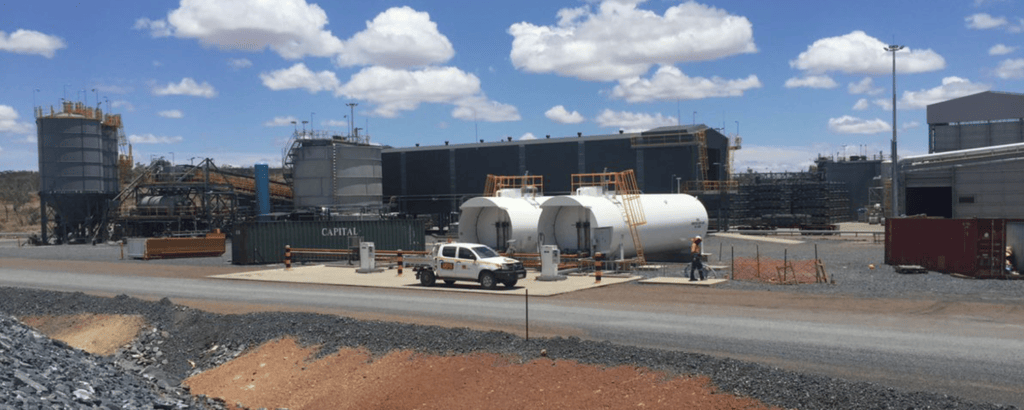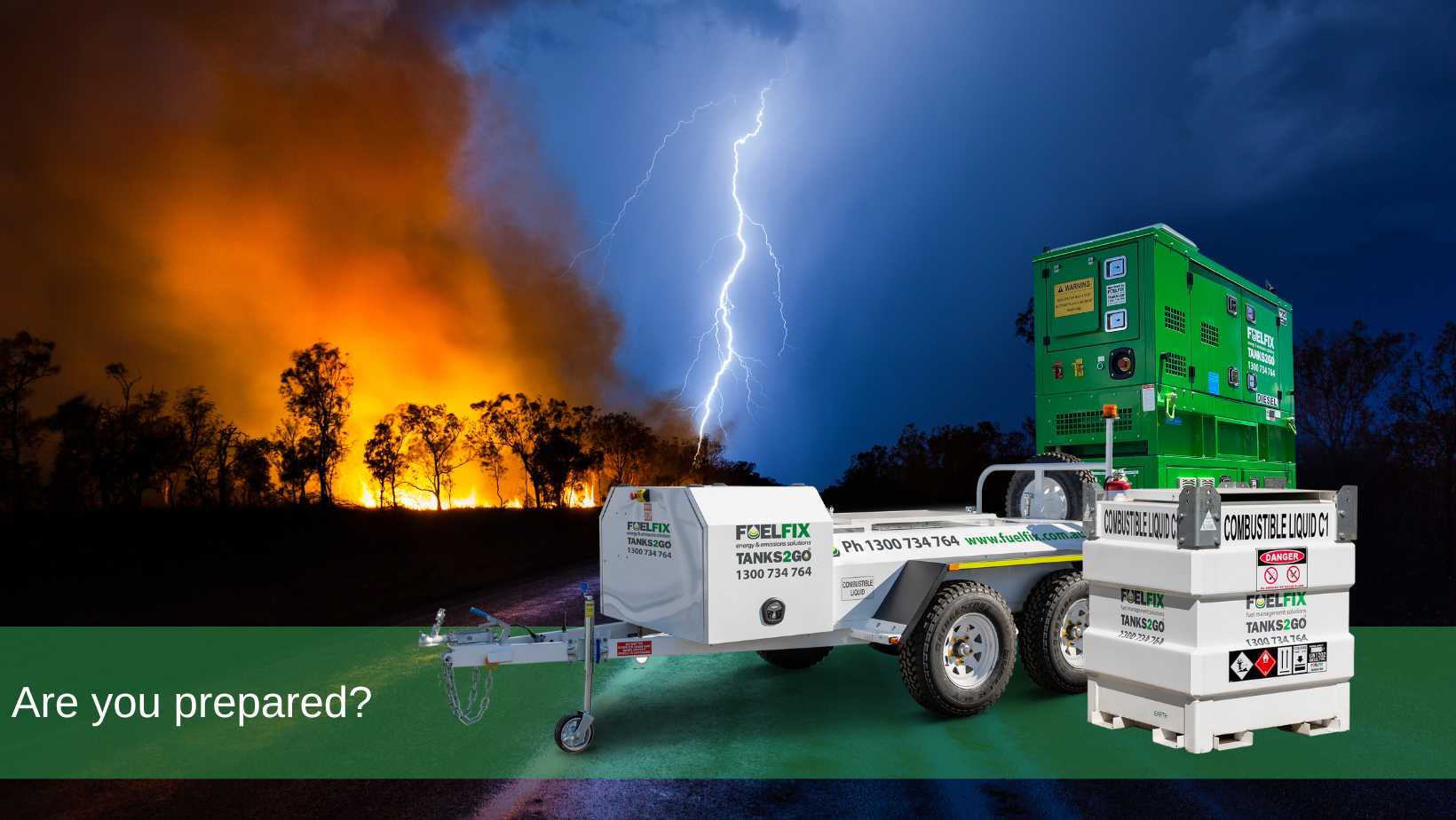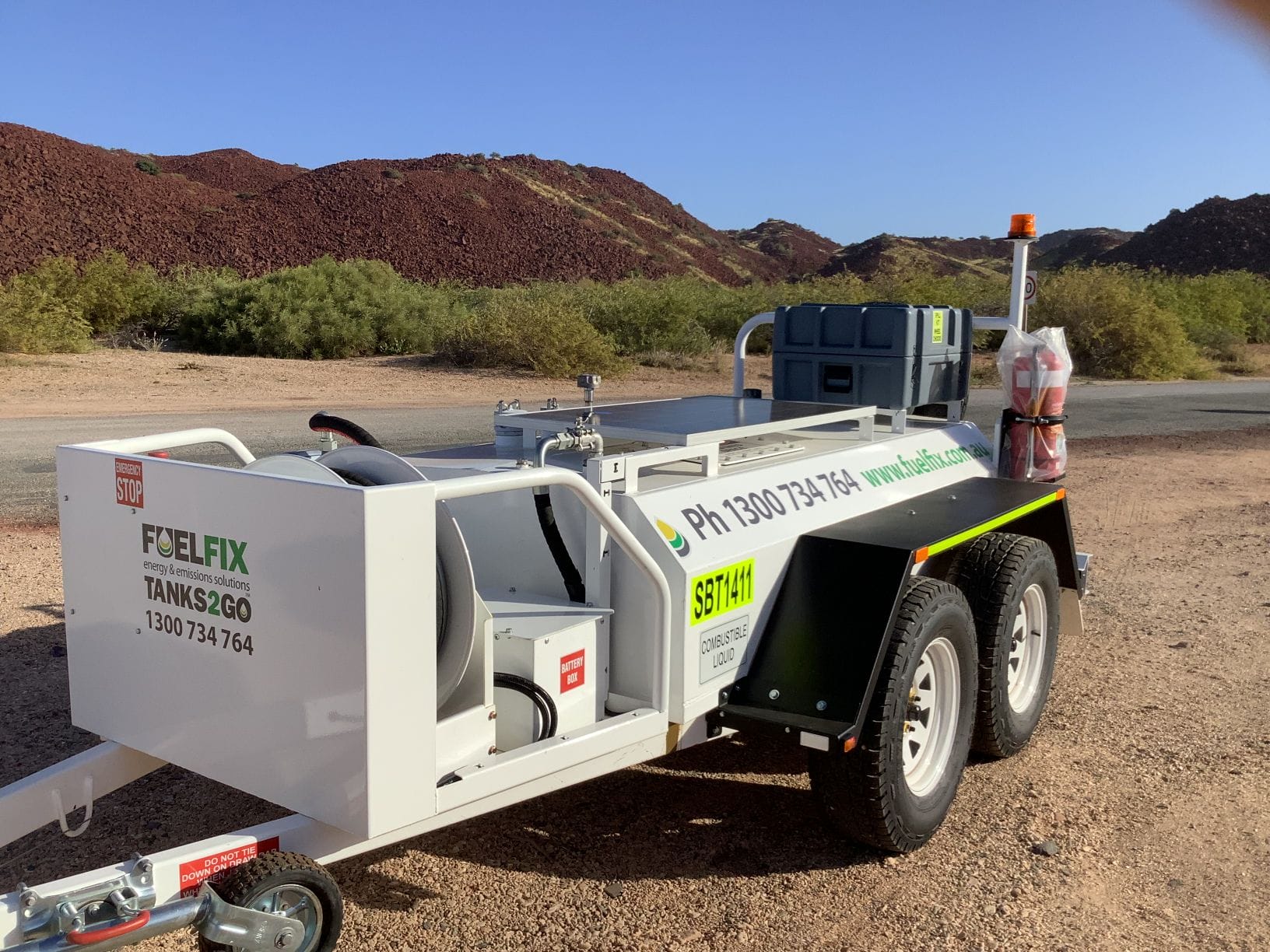
When it comes to the storage and handling of fuel in Australia, one word takes centre stage: safety. It’s a universal concern, transcending borders and industries. Regardless of where you are, ensuring that fuel is stored securely, minimising risks, and safeguarding the environment and people is a top priority.
Compliance equals safety – Properly storing fuel not only protects workers and the environment but also shields businesses from legal risk.
The Australian Standard AS1940:2017 – The Storage and Handling of Flammable and Combustible Liquids – is the go-to compliance guide in this space. It might sound technical, but it boils down to one simple principle: safety first. With recent updates, global alignment initiatives and new technologies shaping how organisations achieve and maintain compliance, now is the perfect time to revisit what AS1940 means for your business.
This guide breaks it all down for you: the changes, the standards, the tech and how Fuelfix & Tanks2Go can help you stay compliant, safe and efficient. Whether you’re a seasoned professional or just starting in the industry, this guide will help you navigate the world of fuel storage compliance without unnecessary jargon or complexity. So, let’s walk through this guide together, exploring AS1940 and understanding how it plays a crucial role in ensuring that fuel storage remains secure and compliant across the board.
The Importance of AS1940 Compliance
1. Safety First
AS1940 is designed with one primary goal: safety. Compliance with this Standard goes a long way towards protecting the lives of workers, the environment, and the community. It establishes strict protocols for the construction, installation, and maintenance of fuel storage facilities to minimise the risk of accidents and disasters.
2. Legal and Safety Obligations
Compliance with AS1940 isn’t just about safety; it’s also about meeting the legal requirements in relevant Regulations. Failure to adhere to these Regulations can result in hefty fines, legal consequences, and reputational damage for businesses.
By understanding and following AS1940, you not only safeguard your operations but also ensure that you remain on the right side of the law. But compliance also means:
- Safer operations
- Reduced environmental risk
- Improved fuel efficiency
- Prolonged asset life
Key Requirements of AS1940
1. Design and Construction
AS1940 mandates specific requirements for the design and construction of fuel storage facilities. It covers everything from the choice of materials to the size and placement of tanks. Compliance in this area ensures that your storage system is structurally sound and minimises the risk of leaks and spills.
Leveraging its extensive hydrocarbons expertise, Fuelfix is well placed to provide best in class solutions to customers in the form of the right sized fuel infrastructure in the right location that guarantees the compliance of fuel and lubricant facilities. Discover Fuelfix’s Engineered Solutions and make sure your facility remains safe and complaint with Australian Standards.
2. Fire Protection
Given the flammable nature of fuel (which varies by fuel type), AS1940 places a strong emphasis on fire protection measures. This includes fire-resistant materials, automatic fire suppression systems, and proper separation distances to prevent the spread of fire in the event of an incident.
3. Ventilation and Air Quality
Proper ventilation is critical to prevent the buildup of fumes and reduce the risk of explosions. AS1940 provides guidelines on ventilation system design and maintenance to ensure that the air quality within the storage facility is safe.
4. Spill and Leak Management
Accidents happen, and when they do, it’s essential to have systems in place to contain and manage spills and leaks. AS1940 outlines the requirements for spill containment systems, including bunding and drainage, to minimise the environmental impact.
5. Training and Emergency Response
AS1940 places an emphasis on training for personnel involved in fuel storage and handling. Properly trained employees are more likely to follow safety procedures and respond effectively in the event of an emergency.
What’s New in AS1940: Recent Updates You Need to Know
1. Engineering Design Updates
- Bund Integrity: Emphasis on ensuring bunds are structurally sound and capable of containing spills.
- Spatial Planning: New spatial layout requirements for tank placement to improve safety and access.
- Fire Protection Upgrades: Enhanced fire protection measures, including updated materials and systems.
2. Operations & Maintenance Enhancements
- Routine Maintenance: Stronger focus on scheduled maintenance of tanks and pipework.
- Inspection Intervals: Clearer guidance on how often inspections should occur.
- Leak Management: Proactive leak detection and management protocols are now recommended.
3. Handling Facilities
- Terminal Networks: New mandates for large-scale fuel terminals to align with international safety frameworks.
- Global Harmonisation System (GHS): AS1940 now aligns with GHS for chemical classification and labelling, simplifying compliance for global operations.
4. Technology Integration
- Automatic Tank Gauging (ATG): Real-time monitoring to prevent overfills and support predictive maintenance.
- Safe Fill Level (SFL): Tanks must not exceed 95% capacity; high-level alarms are required for larger tanks.
- Bund Capacity: Enhanced bunding requirements to manage overflows effectively.
5. Spill Response
- Mandatory Spill Kits: Sites handling Class 3 flammable liquids must now have spill response kits with absorbent materials and waste bags in weather-resistant containers.
6. Electrical Safety
- Hazardous Area Zoning: Electrical installations must comply with AS3000 and AS60079.10, ensuring explosion-proof fittings in hazardous zones.
Achieving AS1940 Compliance
Compliance with AS1940 may seem daunting, but it’s achievable with the right approach. Here’s how to ensure your fuel storage facility meets the standard:
1. Understand the Standard
Start by thoroughly familiarising yourself with AS1940. It’s crucial to understand the requirements and how they apply to your specific situation. Consider seeking expert guidance if needed.
2. Conduct a Risk Assessment
Identify potential risks associated with your fuel storage facility. This assessment will help you determine the specific compliance measures you need to implement to mitigate these risks. Fuelfix provide an array of services such as Fuel facility inspections and compliance and document review of existing sites.
3. Invest in Proper Equipment
Ensure that your fuel storage tanks, pipes, valves, and other equipment meet AS1940 requirements. Investing in high-quality, compliant equipment is an essential step toward compliance. Browse Fuelfix’s range of fuel tanks for sale and hire and rest assured your equipment meet all relevant standards and adheres to environmental and safety regulations.
4. Regular Inspections and Maintenance
Frequent inspections and maintenance are vital to ensure ongoing compliance. Establish a schedule for inspections and address any issues promptly.

5. Employee Training
Train your employees in fuel storage safety protocols and emergency response procedures. Regular training and drills will help reinforce compliance measures.
6. Documentation
Maintain detailed records of inspections, maintenance, and training. Proper documentation is essential to demonstrate compliance in the event of an audit.
Benefits of AS1940 Compliance
Compliance with AS1940 offers several benefits:
1. Safety Assurance
Adhering to AS1940 gets you significantly along the pathway to being confident that your fuel storage facility is as safe as possible, protecting both your employees and the environment.
2. Legal Compliance
Compliance reduces the risk of legal issues and associated costs. It demonstrates your commitment to safety and regulatory compliance.
3. Environmental Responsibility
Proper fuel storage practices minimise the risk of spills and leaks, reducing your environmental footprint and potential cleanup costs.
4. Operational Efficiency
Compliance often leads to more efficient operations as it encourages best practices in fuel storage and handling.
Conclusion
Understanding AS1940 and achieving compliance is a fundamental responsibility for anyone involved in fuel storage and handling in Australia. Not only does it demonstrate safety and environmental responsibility, but it also protects your business from legal consequences.
If you have any questions or need assistance in achieving AS1940 compliance for your fuel storage facility, don’t hesitate to contact Fuelfix & Tanks2Go. We’re here to help you navigate the intricacies of fuel storage compliance and ensure your operations meet the highest safety standards.
Remember, safety should always come first, and compliance with AS1940 is a critical step in that direction.
To find out more about how we can help, call us at 1300 734 764 or fill the contact form on the website.
Our services includes:
- Breakdown Support – repairs and non-scheduled maintenance
- Fuel System Maintenance
- Programs & Scheduled Servicing
- Fuel infrastructure Audits, Calibrations and Upgrades
- Fuel Tank Compliancy Inspection



